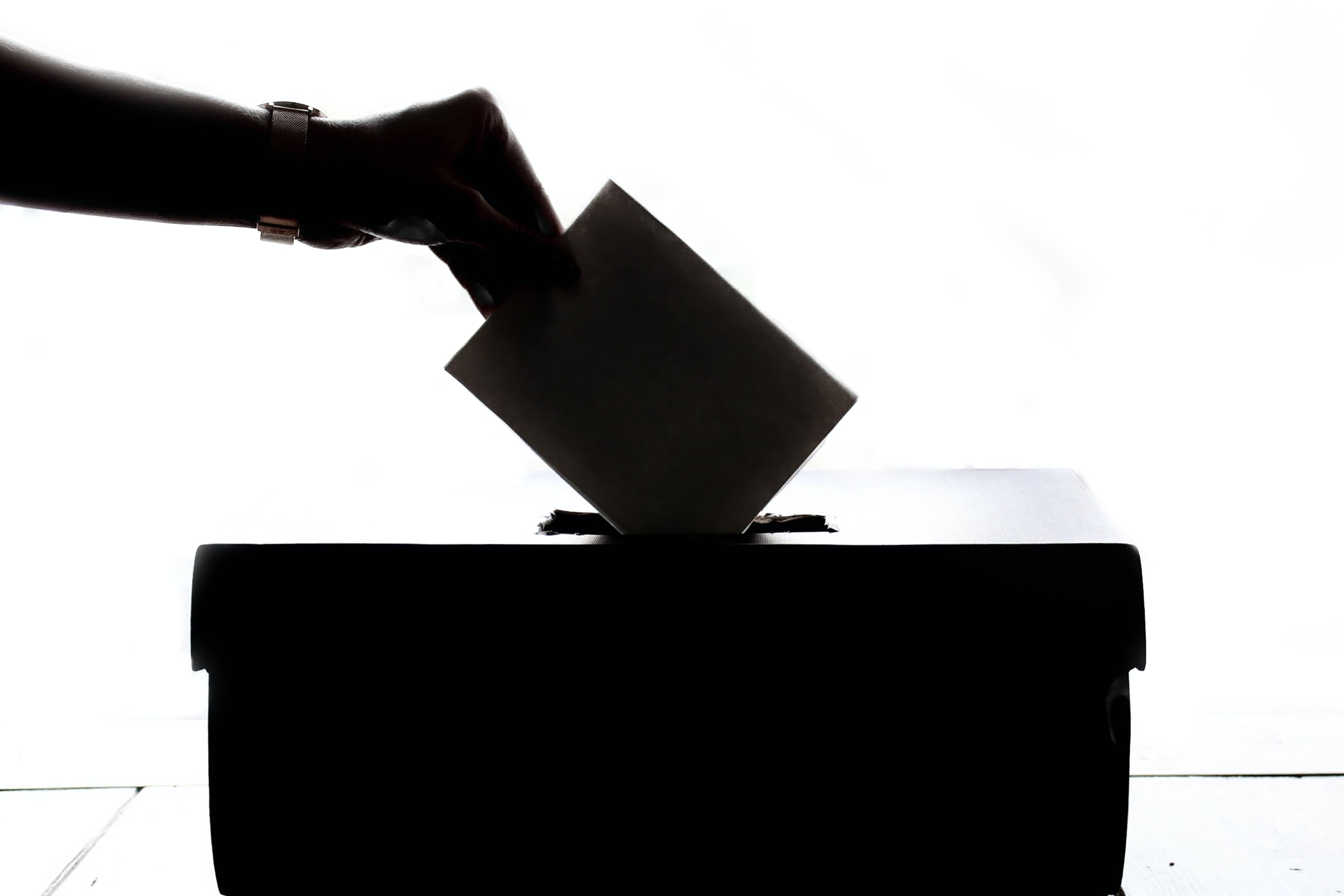
Nigerians were exhilarated and had high expectations when the Independent National Electoral Commission (INEC) announced in 2022 that it is deploying technology to manage the processes in the general conduct of the 2023 elections in Nigeria. According to INEC, technology will be deployed from voters’ registration to voters’ accreditation and also result management.
Prior to the elections, INEC deployed the online Continuous Voter Registration (CVR) platform to enable eligible Nigerians register as voters online, before proceeding to complete the exercise physically at a designated centre; nationwide. Another of the technology which INEC deployed for the 2023 elections is the Bimodal Voter Accreditation System (BVAS); which has its dual fingerprint and facial biometric accreditation process to ensure that only genuine voters are accredited to vote during the elections. It was highlighted that, the sole objective of the BVAS technology is to curtail the incidence of multiple voting and other sharp practices associated with voter accreditation during elections.
It is important to point out here that the BVAS itself is not a new technology used in electoral processes; especially in other countries of the world. In fact, INEC had introduced and tested it in some States in Nigeria prior to the 2023 Presidential election conducted on the 25th of February 2023.
The BVAS is an electronic device that works by, reading Permanent Voter Cards (PVCs) and verify the voter holding the card by using fingerprints and facial recognition. The BVAS is also used to take a snapshot of the collated result sheets at the polling units, and transmit to the INEC Result Viewing (IReV) portal in real-time.
INEC introduced the IReV portal to make the result management procedure more transparent. During the elections, polling units’ results were to be uploaded to the portal in real-time and this portal is open and accessible to everyone to check and verify the uploaded results.
Unlike with the way elections have been conducted in past years in Nigeria, the BVAS and the IReV portal were expected to jointly enhance the integrity of the elections by promoting transparency and prevent the forms of electoral malpractices and manipulations of results beclouding the erstwhile analogue electoral process of result collation.
Many of the Nigerian citizens and even the international community have been looking forward to the 2023 presidential election, however, while looking at the good potentials of the deployment of the technology, many failed to also avert their mind to the potential risk that can happen; ranging from technical glitches, lack of technical know-how to mismanagement and manipulations of the technology by the handlers.
Prior to the presidential Election Day, a lot of questions were raised by a couple of individuals. One of the presidential candidates under the African Action Congress; Omoyele Sowore raised series of concerns about INEC’s general conducts of elections in retrospect, as well as highlighting that during the conduct of the Osun State 2022 governorship election in Nigeria where the BVAS was used, there were still cases of over-voting, over-registration and all other electoral malpractices, with the BVAS and IReV portal not completely solving all the problems that were envisaged.
According to Sowore, he logged in to the IReV portal for the Osun State’s governorship election but observed a lot of technical issues while using the platform; he pointed out that the IReV portal seemed unable to effectively handle the large traffic of people and made the display or results in real-time difficult. He queried the IReV’s capacity to effectively serve its purpose during the conduct of the 2023 presidential election, which is definitely going to be more tasking.
The Chief Executive Officer of New Horizons Nigeria; Tim Akano, reportedly advised INEC to conduct a stress test on Data-in-Motion on the BVAs before the Election Day. This was to help ensure that there is stronger security protection for data transmission before the elections. The recently conducted election is supposed to be the first of its kind in the history of Nigeria, when live data will be used to determine who will be the next president of the country.
Tim Akano pointed out that the inferno that can burn Nigeria as a country is the use of live data that is prone to glitches, exploitations, interceptions and attack. While commending the INEC for the end-to-end encryption they have done for the technology, he however, suggested that INEC employ the services of Nigerian Cyber Security Practitioners and even appoint some devil’s advocate, who will conduct a stress test on the BVAS Data-in-Motion before the wholesale adoption on the Election Day.
Stress testing has the overall advantage of ensuring that a technology is reliable and performs well under a wide range of conditions. It helps to identify any potential problems before they can affect users or cause major disruptions, and it allows developers and engineers to make improvements and optimizations to improve the overall performance and stability of the technology.
After all that was said, INEC continued to reassure Nigerians and the government on their readiness to effectively conduct the presidential election. However, the Election Day came and the process was conducted with a lot of noticeable glitches and hiccups. These plausible irregularities have affected the perspective of Nigerians on the credibility of the election.
There were several reports of the BVAS malfunctioning and even some of the INEC Adhoc Staffs in some polling units reportedly lacked enough knowledge on the use of the BVAS. There were also some reported cases of poor network coverage and even outright failures of the BVAS.
One of the major issues was the failure of INEC to timely upload the election results collated from the polling units real-time, contrary to what was envisaged with the use of the BVAS and the IReV portal. It was reported by some voters at some polling units, that some of the INEC staffs could not transmit the results immediately after collation either because of network issue or the BVAS malfunctioning. INEC even proceeded to release a report apologizing for the technical issues that affected real-time upload of the results from the different polling units. Meanwhile, many voters and even some of the political parties and presidential candidates believe this issue completely flawed the electoral process and truncates the credibility of the election, as the delay may have given room for results manipulations.
The fact that the presidential election has now been concluded and a president-elect declared does not seem to put the matter to rest as a part of the people are still dissatisfied. In this regards, we are probably going to be seeing election petitions from some of the presidential candidates that have openly expressed dissatisfaction on the general conduct of the election, while also alleging electoral malpractices and manipulation of results.
While it is very normal for candidates and their supporters to dispute the outcome of elections when it does not end in their favour, some of the agitations could have been avoided if INEC had exercised due care to prevent the failure of the technology. However, it is important for us to understand that no technology is perfect and even the most advanced systems can have issues or vulnerabilities that can result in glitches or even get exploited by attackers.
In the heat of the moment, care needs to be taken to prevent the agitations from escalating into a full-blown conflict. Only the court can put this matter to a judicious end, and in doing this, INEC needs to prove that it was not negligent in the general conduct of the presidential election and that the glitches experienced with the technology they deployed was not as a result of human error or a strategic plot to manipulate the outcome of the election. In the end, INEC needs to understand that the role it plays in the politics of the people is a very sensitive one that requires utmost care and neutrality.
We applaud INEC for moving to integrate technology in the electoral process, but the adoption of technology puts a burden of responsibility and can also have negative consequences if mismanaged; like what we are currently experiencing.
On the other hand, the presidential candidates just as every normal politician are all craving power. With or without the technical issues experienced with the technology deployed for the conduct of the election, we were definitely going to have aggrieved parties. The failures of the technology and some other issues have now given them a greater reason to dispute the outcome of the result.
It is important that we condemn the activities of some of the political parties of aggrieved presidential candidates in inciting protest amongst their supporters. We also vehemently condemn some of the press statements made by some of the aggrieved candidates and their supporters; declaring that their preferred candidates won the election and is the rightful president, in opposition to the declaration of INEC. Such unconstitutional statements if not checked are capable of resulting to a breakdown of law and order in Nigeria.
Nothing should stop any of the aggrieved parties from seeking redress. Put more succinctly, seeking redress at this point of perceived wrong may just turn out to be justice for the people, and will definitely prevent issues like this from reoccurring in future, but this must be done within the confines of the constitution.
What aggrieved parties need to do is cease with the accusations and stop pursuing social media justice. They need to proceed to the Election Tribunal in Nigeria with their credible evidence. Aggrieved parties should know that justice cannot be done via social media or by romancing the emotions of the people.
All we know at this stage as fact, is that the technology INEC deployed for the conduct of the election failed in part, at the point when it was needed most. Other accusations of electoral malpractice; though consequential, are unfortunately mere speculations until they are proven in a court of competent jurisdiction.
Good thing is, solving the probable issue of results manipulation may not be a herculean task, because all the political parties that participated in the election had their party agents present at every polling unit and the party agents had access to hardcopies of the collated result-sheets from the various polling units. In this regards, one thing they can do is furnish the court with copies of the result-sheets they collected directly from the polling unit and prove the discrepancies in figures; if any. The comparison and proper scrutiny of the results is very necessary in this situation, despite what was eventually uploaded on the IReV platform, and what was announced by INEC during the official declaration of the winner.











